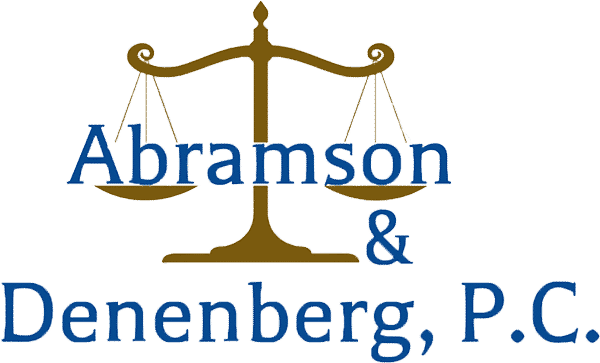Our country is more in tune with issues involving police brutality now than ever. Some have named the summer of 2020 the summer of George Floyd due to massive, nation-wide protests that arose after a police officer in Minnesota killed George Floyd by kneeling on his neck. Philadelphia has a long history of police brutality and misconduct, going back for over 100 years. In 2016, riots broke out after a police officer in Philadelphia killed Philando Castille during a traffic stop after the man reached for his driver’s license. A jury acquitted the police officer during his trial.
Advocacy groups concerned with police brutality, especially in Black communities, have pointed out that police officers have inadequate training when dealing with volatile situations. This lack of training can lead to officers using deadly force when they could have de-escalated the violence. There is also a lack of transparency, particularly in the Philadelphia Police Department, leading many to distrust police brutality investigations. We have listed three alleged police brutality incidents in Philadelphia that have been newsworthy over the past year. These were not the only incidents that took place, however. Police brutality is far too common in Philadelphia, and voters have recently passed three ballot initiatives to curb this ongoing problem.
Police Officers Shot and Killed Walter Wallace, Jr.
In Philadelphia, the police officers who shot and killed Walter Wallace Jr. this month claimed that he was wielding a knife and was mentally distraught when he approached them. Many people are questioning whether or not police officers should have used lethal force in this situation, especially as the man was mentally disturbed at the time. However, law enforcement officials have stated that the officers acted appropriately to shoot at someone’s chest when the suspect is charging them. Should officers always shoot to kill? Many critics of police violence say no. In some cases, it would be better for them to shoot to wound.
Charles H. Ramsey, the former Philadelphia Police Commissioner, has stated that Philadelphia should give police officers tasers, which are nonlethal devices used to incapacitate people through electric shock. The officers who killed Wallace did not have tasers, and only 6,500 Philadelphia police officers have tasers. The family of Walter Wallace may bring a police brutality lawsuit against the Philadelphia police department, arguing that the use of lethal force was not justified and that Wallace’s civil rights were violated. In the meantime, there have been large protests throughout Philadelphia regarding his case and police brutality throughout the country.
Philadelphia Residents Approve Two Police Brutality Reform Measures
Voters recently decided to enact police reform policies that were on their November ballots. As a result, the city of Philadelphia will establish a new police oversight commission. This new commission will replace the police advisory commission that many have criticized for not being powerful enough to curb police brutality. It will also amend the city charter to ban illegal stop-and-frisk by law enforcement officers.
The measure regarding stop-and-frisk policing is mostly symbolic because it is already illegal per the constitutional case law for police officers to stop and frisk. Unfortunately, recent data shows that police officers disproportionately stop people of color. Data also shows that police officers engage in stop-and-frisks without first establishing a reasonable suspicion that criminal activity has happened, which is required per the Constitution. The ballot measure reiterates that Philadelphia police officers cannot stop a potential subject based on “race, ethnicity, gender, sexuality, religious affiliation or expression, or other protected characteristic.”
Additionally, voters chose to support a ballot measure to establish an advocate office for victims of police brutality. This ballot measure allows the city to borrow $134 million to start these initiatives. The mayor has the authority to appoint the victim advocate, and the Philadelphia city council must approve of the mayor’s choice. The funds must be spent on streets and sanitation, transit, parks, recreation, museums, municipal buildings, and general community development. Advocates of the initiative measure hope that by investing in downtown Philadelphia, violent crime will decrease, and the community will benefit.
Police Brutality During the George Floyd Protests
Riots broke out across the country after police officers killed a black man named George Floyd in Minneapolis. The officers kneeled on his neck for almost nine minutes before he died, and the officers are now facing murder charges. Protesters called for ending police brutality and defunding the police. Many have criticized Philadelphia police officers’ reaction to protesters, claiming that they engaged in police brutality. One video showed a police officer ripping off kneeling protesters’ face masks and spraying them with pepper spray.
Another video shows police using tear gas on protesters who were marching across the I-676 expressway. Other evidence shows police officers using tear gas on protesters in Black West Philly. Since the protests, the police department has fired the officer who sprayed protesters with pepper spray. Three different federal lawsuits have been filed. The plaintiffs contend that the police officers violated their constitutional rights by taking grossly excessive actions against them with tear gas and pepper spray.
Contact a Philadelphia Police Brutality Lawyer
If you or your loved one have suffered an injury due to police brutality in Philadelphia, you need an experienced lawyer on your side. At Abramson & Denenberg, P.C., we focus our practice on protecting Philadelphia residents’ civil rights; we have a proven track record of obtaining compensation for victims of police brutality. Police brutality is heinous, and it violates our clients’ constitutional rights, which is why we fight so hard for our clients in court. The sooner you speak to a civil rights lawyer, the better. Contact us today to schedule your initial consultation.

